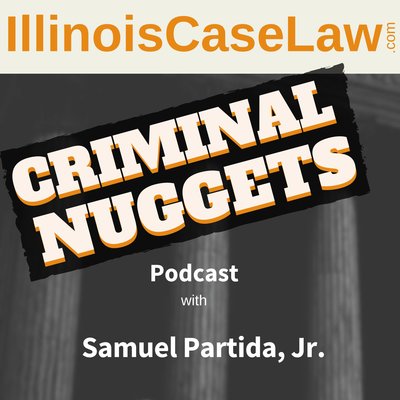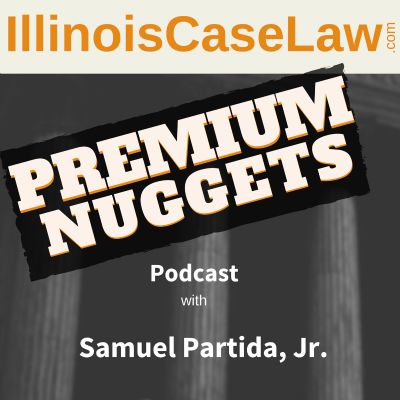Mar 20, 2017
Pena-Rodriguez v. Colorado, SCOTUS (March 2017). Episode 310 (Duration 22:11)
The constitution must allow for some form of judicial inquiry when it becomes clear that a juror has allowed racial bias to influence their verdict.
Facts
Defendant was convicted by jury trial in Colarado of sexaually contact with minors. Two jurors told defense counsel that, during deliberations, another juror had expressed anti-Hispanic bias toward petitioner and petitioner’s alibi witness.
Petitioner’s counsel reported this to the court and, with the court’s supervision, obtained sworn affidavits from the two jurors.
Here are some of things the third juror (biased juror) told the other jurors:
● He “believed the defendant was guilty because, in the biased juror's experience as an ex-law enforcement officer, Mexican men had a bravado that caused them to believe they could do whatever they wanted with women.”
● Dude said Mexican men are physically controlling of women because of their sense of entitlement, and further stated, “I think he did it because he’s Mexican and Mexican men take whatever they want.”
● The biased juror further explained that, in his experience, “nine times out of ten Mexican men were guilty of being aggressive toward women and young girls.”
● Finally, the guy said that he did not find petitioner’s alibi witness credible because, among other things, the witness was “an illegal.”
The judge denied defendant any relief citing the Colorado “no-impeachment” rule.
The "No-Impeachment" Rule
Like all human institutions, the jury system has its flaws, yet experience shows that fair and impartial verdicts can be reached if the jury follows the court’s instructions and undertakes deliberations that are honest, candid, robust, and based on common sense.
A general rule has evolved to give substantial protection to verdict finality and to assure jurors that, once their verdict has been entered, it will not later be called into question based on the comments or conclusions they expressed during deliberations.
This principle, itself centuries old, is often referred to as the "no-impeachment" rule.
More on The "No-Impeachment" Rule
The original idea behind the rule was that a juror could not “impeach” their verdict by talking about their deliberation.
So the rule did not allow them to testify about their subjective mental process or about objective events that occurred during deliberations.
The rule morphed from there.
Federal Rule 606(b)
The common-law development of the no-impeachment rule reached a milestone in 1975, when Congress adopted the Federal Rules of Evidence, including Rule 606(b).
Congress, like the McDonald Court, rejected the Iowa rule.
Instead it endorsed a broad no-impeachment rule, with only limited exceptions for outside extraneous influences on the jurors. The current version of Rule 606(b) states as follows:
“(1) Prohibited Testimony or Other Evidence. During an inquiry into the validity of a verdict or indictment, a juror may not testify about any statement made or incident that occurred during the jury’s deliberations; the effect of anything on that juror’s or another juror’s vote; or any juror’s mental processes concerning the verdict or indictment. The court may not receive a juror’s affidavit or evidence of a juror’s statement on these matters. (2) Exceptions. A juror may testify about whether: (A) extraneous prejudicial information was improperly brought to the jury’s attention; (B) an outside influence was improperly brought to bear on any juror; or (C) a mistake was made in entering the verdict on the verdict form."
Illinois Rule 606(b) - Inquiry Into Validity or Verdict or Indictment
The Illinois Rules says,
"Upon an inquiry into the validity of a verdict or indictment, a juror may not testify as to any matter or statement occurring during the course of the jury’s deliberations or to the effect of anything upon that or any other juror’s mind or emotions as influencing the juror to assent to or dissent from the verdict or indictment or concerning the juror’s mental processes in connection therewith. But a juror may testify (1) whether any extraneous prejudicial information was improperly brought to the jury’s attention, (2) whether any outside influence was improperly brought to bear upon any juror, or (3) whether there was a mistake in entering the verdict onto the verdict form. A juror’s affidavit or evidence of any statement by the juror may not be received concerning a matter about which the juror would be precluded from testifying."
Illinois Rule of Evidence 606(b).
Issue
The instant case presents the question whether there is an exception to the no-impeachment rule when, after the jury is discharged, a juror comes forward with compelling evidence that another juror made clear and explicit statements indicating that racial animus was a significant motivating factor in his or her vote to convict.
In this case, the Court must decide whether the Constitution requires an exception to the no-impeachment rule when a juror’s statements indicate that racial animus was a significant motivating factor in his or her finding of guilt.
Analysis
Fancy Talk
It must become the heritage of our Nation to rise above racial classifications that are so inconsistent with our commitment to the equal dignity of all persons. This imperative to purge racial prejudice from the administration of justice was given new force and direction by the ratification of the Civil War Amendments.
The central purpose of the Fourteenth Amendment was to eliminate racial discrimination emanating from official sources in the States.
In the years before and after the ratification of the Fourteenth Amendment, it became clear that racial discrimination in the jury system posed a particular threat both to the promise of the Amendment and to the integrity of the jury trial.
The duty to confront racial animus in the justice system is not the legislature’s alone. Time and again, this Court has been called upon to enforce the Constitution’s guarantee against state-sponsored racial discrimination in the jury system.
Back To This Case
The unmistakable principle underlying these precedents is that discrimination on the basis of race, odious in all aspects, is especially pernicious in the administration of justice.
Permitting racial prejudice in the jury system damages both the fact and the perception of the jury’s role as “a vital check against the wrongful exercise of power by the State.
This case lies at the intersection of the Court’s decisions endorsing the no-impeachment rule and its decisions seeking to eliminate racial bias in the jury system.
Prior Precedent
The two lines of precedent, however, need not conflict.
An effort to address the most grave and serious statements of racial bias is not an effort to perfect the jury but to ensure that our legal system remains capable of coming ever closer to the promise of equal treatment under the law that is so central to a functioning democracy.
Voir Dire Doesn't Work
For instance, this Court has noted the dilemma faced by trial court judges and counsel in deciding whether to explore potential racial bias at voir dire.
Generic questions about juror impartiality may not expose specific attitudes or biases that can poison jury deliberations. Yet more pointed questions could well exacerbate whatever prejudice might exist without substantially aiding in exposing it.
Thus, there is a sound basis to treat racial bias with added precaution.
Natural Limits
Not every offhand comment indicating racial bias or hostility will justify setting aside the no-impeachment bar to allow further judicial inquiry.
For the inquiry to proceed, there must be a showing that one or more jurors made statements exhibiting overt racial bias that cast serious doubt on the fairness and impartiality of the jury’s deliberations and resulting verdict.
To qualify, the statement must tend to show that racial animus was a significant motivating factor in the juror’s vote to convict. Whether that threshold showing has been satisfied is a matter committed to the substantial discretion of the trial court in light of all the circumstances, including the content and timing of the alleged statements and the reliability of the proffered evidence.
States Will Figure It Out
The states and the their court’s should figure out the details. This case does not ask, and the Court need not address, what procedures a trial court must follow when confronted with a motion for a new trial based on juror testimony of racial bias.
The Court also does not decide the appropriate standard for determining when evidence of racial bias is sufficient to require that the verdict be set aside and a new trial be granted.
Holding
A constitutional rule that racial bias in the justice system must be addressed—including, in some instances, after the verdict has been entered—is necessary to prevent a systemic loss of confidence in jury verdicts, a confidence that is a central premise of the Sixth Amendment trial right.
For the reasons explained above, the Court now holds that where a juror makes a clear statement that indicates he or she relied on racial stereotypes or animus to convict a criminal defendant, the Sixth Amendment requires that the no-impeachment rule give way in order to permit the trial court to consider the evidence of the juror’s statement and any resulting denial of the jury trial guarantee.
"No-Impeachment" Rule Has One Exception
The progress that has already been made underlies the Court’s insistence that blatant racial prejudice is antithetical to the functioning of the jury system and must be confronted in egregious cases like this one despite the general bar of the no-impeachment rule.
It is the mark of a maturing legal system that it seeks to understand and to implement the lessons of history.
The Court now seeks to strengthen the broader principle that society can and must move forward by achieving the thoughtful, rational dialogue at the foundation of both the jury system and the free society that sustains our Constitution.
Reversed and remanded.



